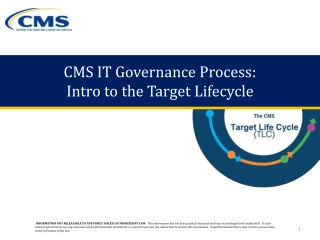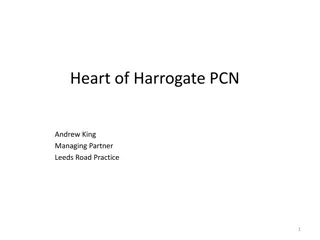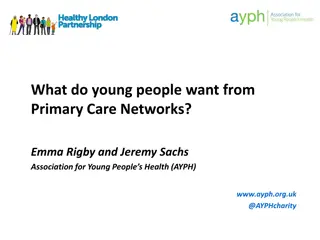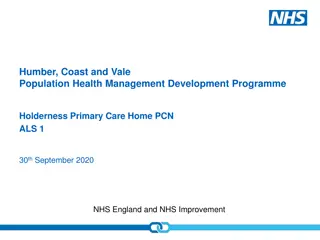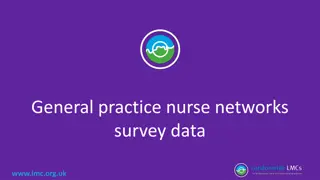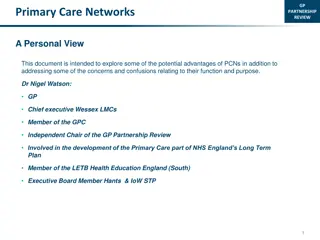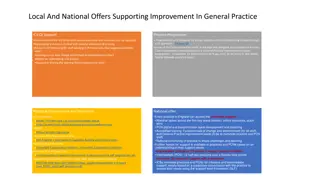
Primary Care Networks in NHS England
Primary Care Networks (PCNs) are crucial for the future of healthcare in England, offering practices new funding streams and staff roles to improve patient care. Practices forming PCNs need to meet specific targets and standards to access funding and support. Learn more about PCNs and their impact on local healthcare services.
Download Presentation

Please find below an Image/Link to download the presentation.
The content on the website is provided AS IS for your information and personal use only. It may not be sold, licensed, or shared on other websites without obtaining consent from the author. If you encounter any issues during the download, it is possible that the publisher has removed the file from their server.
You are allowed to download the files provided on this website for personal or commercial use, subject to the condition that they are used lawfully. All files are the property of their respective owners.
The content on the website is provided AS IS for your information and personal use only. It may not be sold, licensed, or shared on other websites without obtaining consent from the author.
E N D
Presentation Transcript
PCNs What are they? What do the Practices have to do? What are ARRs staff? How are they working in our areas?
What are they? NHS England PCNs are key to the future! A 5 yr Enhanced Service that Practices sign up to Groupings of Practices representing 30-50k patients Have a PCN Clinical Director a GP or other agreed clinician lead Have a signed PCN agreement A building block of the NHS long term plan local delivery units of Primary Care
What are they? Exist to allow the govt to pass new investment into Primary Care Offer Practices a new funding stream to pay for new Primary Care staff (ARRs roles) Strings attached to this new investment Practices have to meet a number of targets: 1. Impact and investment fund (IIF) 2. Service requirements 3. DES standards
Funding: Core PCN funding: payments of around 1.50 per registered patient to support the PCN as an organisation. Clinical director contribution: payment for approximately a quarter of a GP s full-time hours to act as the PCN clinical director. Additional Roles Reimbursement Scheme payments: reimbursement of the salary for the new roles being recruited into general practice (eg, clinical pharmacists, physiotherapists) along with certain other costs such as employer pension and national insurance contributions. Care home premium: payments of 120 per care home bed to help cover the additional cost of providing services to patients in care homes.
Funding: PCN support payment: small additional weighted payments to further support the PCN in 2020/21. Extended hours access payments: payments of 1.45 per registered patient for providing extended hours services now changing from Oct 22 to Enhanced Access payment From Oct 22 Enhanced Access payment of 7.46 per pt Investment and Impact Fund: financial incentive scheme with payments to the PCN based on performance. Additionally, individual practices within the PCN also receive a Network Participation Payment: a payment of 1.76 per weighted patient made to recognise an individual practice s commitment to being part of a PCN.
What do Practices Have to do? Investment and Impact Fund like QOF for Networks. 1153 points to score (this year increases each year) 1 point = 200 Areas include prevention and health inequalities, cardiovascular disease, providing high quality care, enhanced health in care homes, anticipatory care, cancer care, structured medication reviews, sustainable NHS Very difficult/impossible to achieve all of the points Service requirements Mirror IIF areas (above) but are less measurable Enhanced Access new this year From Oct 22 Networks must have in place services which run from 6.30-8pm Mon-Fri and Sat 9-5. 60mins of appt time made available per 1000 pts registered (So a network of 40k patients must offer 40hours of enhanced access time/wk. Payment of 7.46 per patient will be paid for this service to PCNs (approx. 300k for an average network)
ARRs Staff Additional Roles Reimbursement Scheme New staff delivered into primary care to support delivery of care to patients and support delivery of the new services Salaries are reimbursed directly to PCNs by NHSE through a claims process. Salaries are capped so PCNs often have to top up Maximum budget a PCN can use has been rising each year so now an average PCN can employ almost 40 new staff, and the mix is up to them
ARRs Staff portfolio Pharmacists Pharmacy technicians Musculoskeletal first contact practitioners (MSK FCPs) Paramedics Physicians Associates (PAs) Social Prescribers Occupational therapists Dieticians Podiatrists Care Co-ordinators Nurse training associates Nursing associates Advanced Practitioners Adult Mental Health Practitioner Children's and Young Persons (CYP) Practitioner
How are they working in our area? Two Practices in Wessex have not opted into the PCN DES, all others are in a PCN Some genuine success with networks now commonly employing an independent manager to support 20-30 new staff on average Improving quality of care and quantity of access for patients Helping GPs, Nurses and admin teams to deliver care Have been key to the Covid vaccination program Problems: Leadership time for PCN CDs Cross practice working issues sharing staff, flow of money Enhanced Access a real headache for Practices New staff don t understand general practice, often leave due to shock at intensity of work staff churn and associated work What happens next? - 4 yrs into a 5 yr contract

